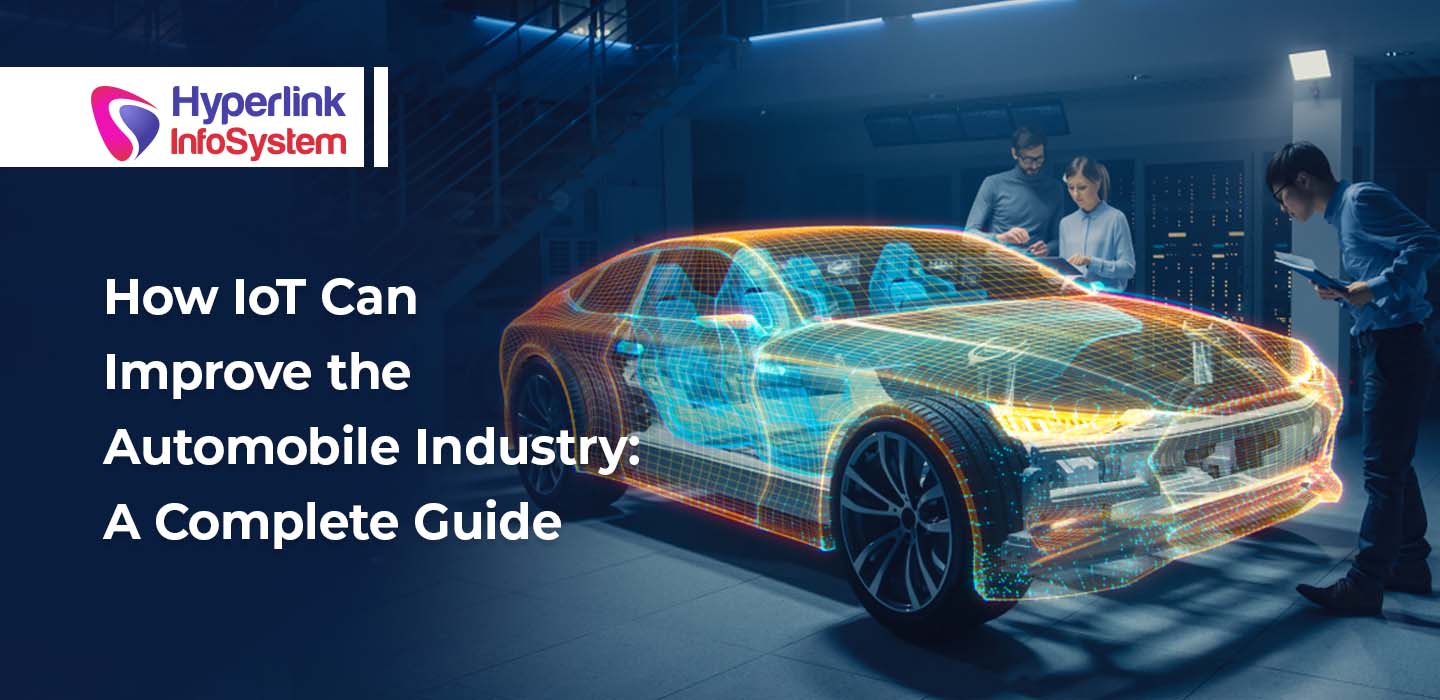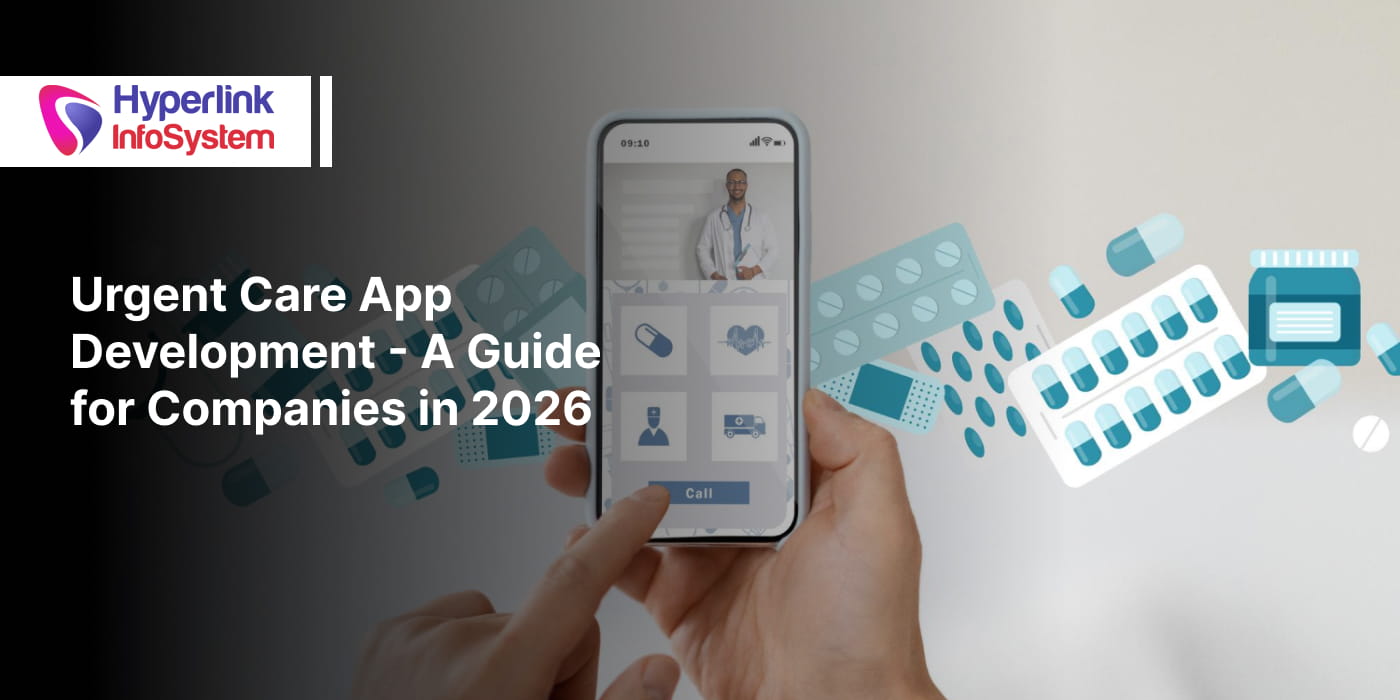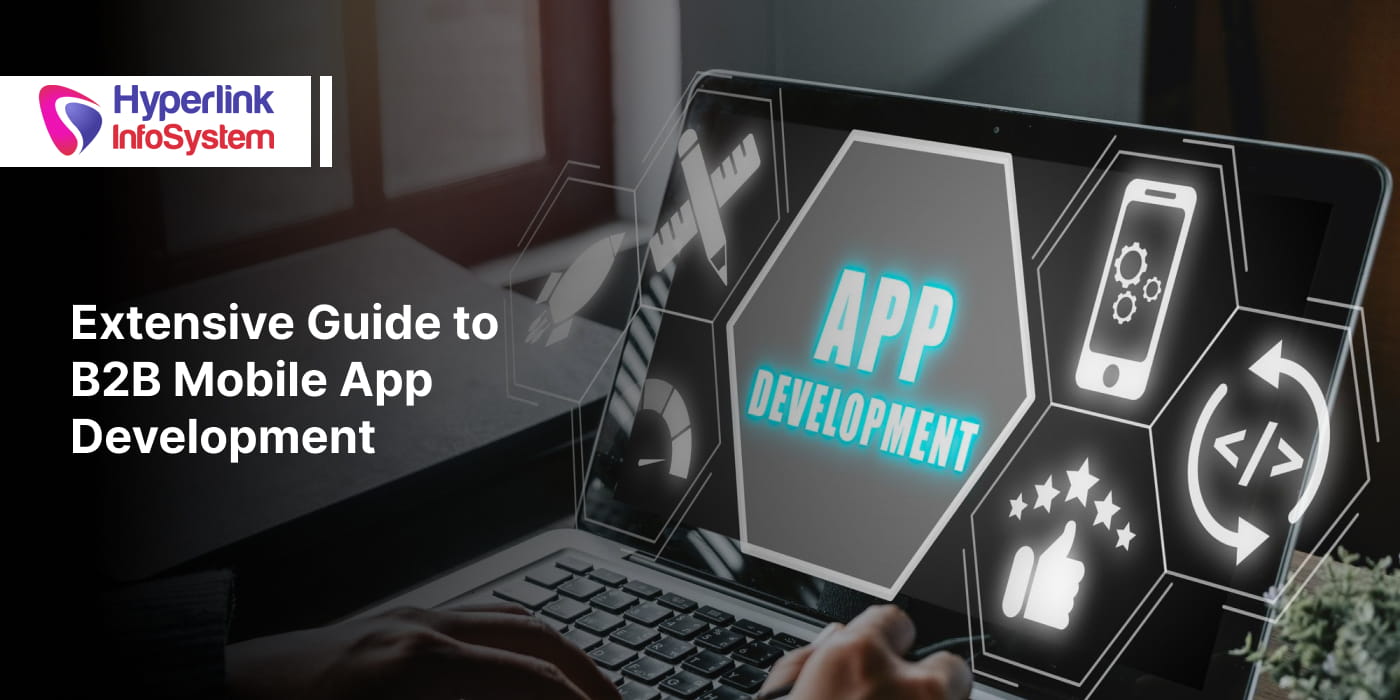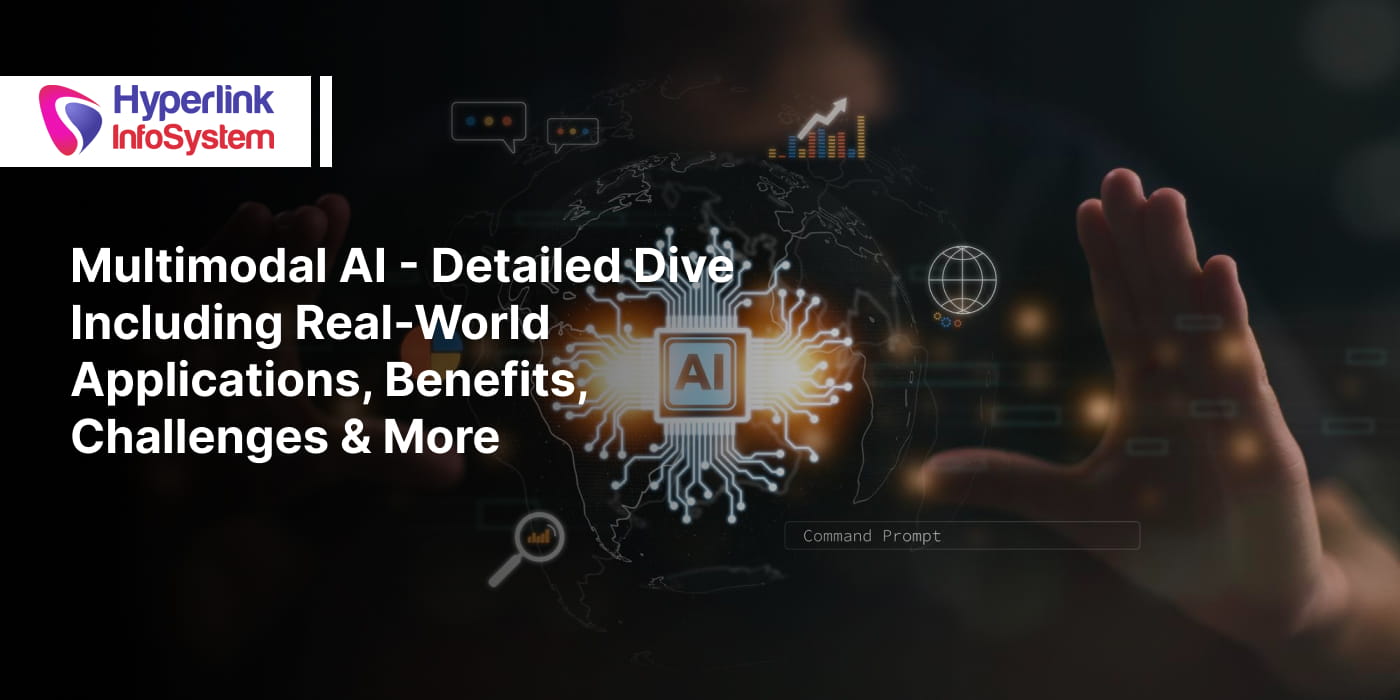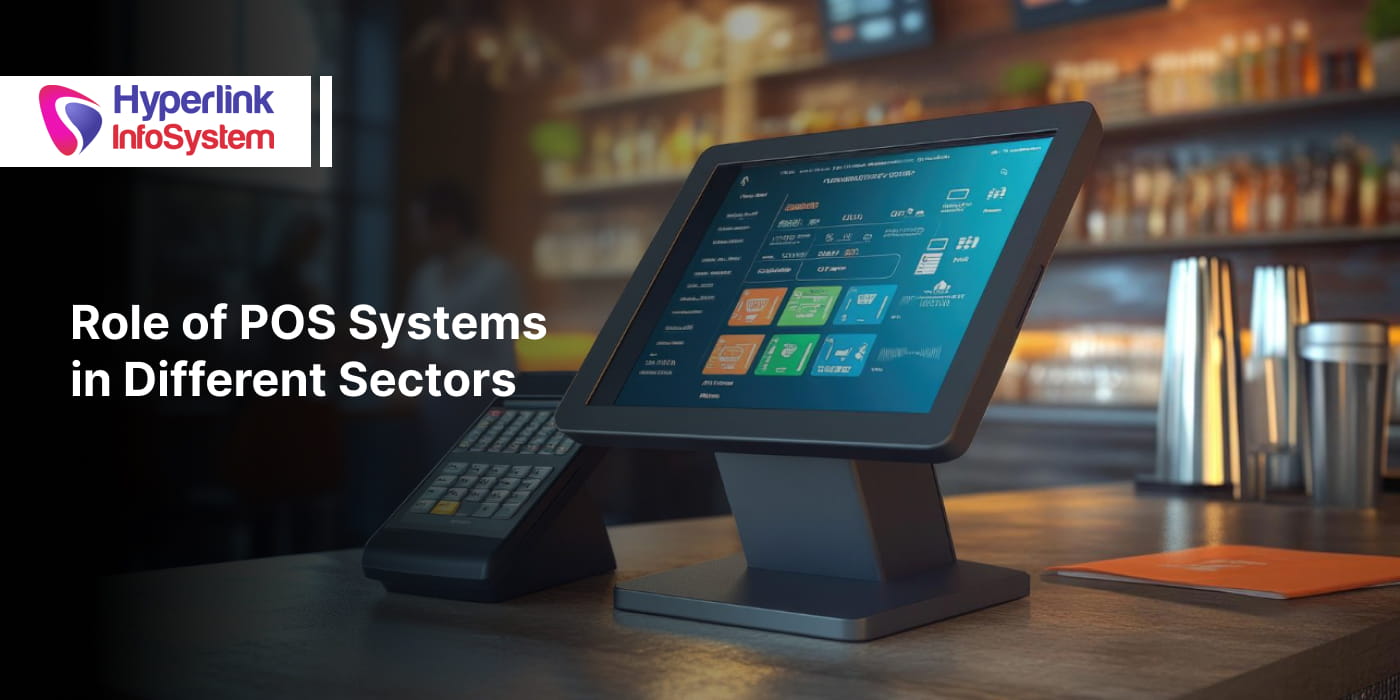IoT development is an emerging field that involves connecting various devices to the internet and creating smart solutions for businesses and individuals. The Internet of Things (IoT) has the potential to transform the automobile sector in a variety of ways, ranging from increasing vehicle efficiency to opening up new business opportunities. IoT App development involves designing and building mobile applications that can communicate with IoT devices and provide users with real-time information and insights. In recent years, the car industry has been rapidly adopting IoT technologies.
In the automobile business, IoT app development technology has numerous potential uses. Automotive IoT Apps have revolutionized the way we interact with cars, making them safer, more efficient, and connected to the internet. One of the most promising is the potential to link vehicles to the internet and communicate with one another and other devices. By delivering real-time data on traffic, weather, and road conditions, this technology can be utilized to improve vehicle safety. It can also be used to improve the driving experience by offering entertainment and navigation services, for example.
The Internet of Things has the potential to transform the automobile sector, from enhancing vehicle safety to opening up new commercial options. However, there are certain issues to address, such as data privacy and security, as well as the need for standardization. As the automobile sector continues to embrace
IoT technology, it will be critical to overcome these difficulties and guarantee that the technology's benefits are fully realized.
IoT Development involves a range of technologies, such as cloud computing,
artificial intelligence and machine learning, to create innovative and efficient solutions for businesses and consumers. To create successful IoT applications, you need IoT app developers who can leverage cutting-edge technologies, such as blockchain, edge computing, and predictive analytics, to deliver impactful solutions.
In this post, we will discuss and explore IoT information for the automobile industry, including benefits, use cases, and obstacles.
What is the IoT in Automobile Industry?
To build IoT in cars, the automobile sector has integrated a variety of digital components. Connected sensors and devices, mobile applications, software, automatic driving assistance systems (ADAS), cloud computing technologies, and other relevant gadgets are all included. These components work together to form a network of linked gadgets that improve the driving experience while also providing real-time data and analytics to drivers and manufacturers.
The Internet of Things in the automobile industry creates the framework for seamless communication among vehicles through optimizing manufacturing, predictive maintenance, data storage and management, insurance, and fleet diagnostics. This integration of linked devices and sensors enables real-time data analysis, allowing producers to make better decisions and discover and address issues more effectively. This results in a better driving experience, lower expenses, and higher safety for both drivers and passengers.
The use of IoT in automobiles allows OEMs to focus on their core business skills while driving forward innovation. Vehicles are transformed into nearly artificially intelligent, networked models by incorporating IoT technologies. This enables more efficient and effective data analysis, leading to advancements in vehicle design, safety, and performance. Drivers can enjoy a more personalized and secure driving experience with IoT-enabled services such as real-time navigation, remote diagnostics, and predictive maintenance. As a result, the automobile industry is continuously pushing the limits of what is possible, propelling us into a smarter, more connected future.
Exploring novel driving solutions is the goal of IoT adoption in the automobile industry. This integration of connected devices and sensors enables mobile communication while also bringing more convenient features and functionality for a variety of automobiles. IoT technology, from real-time navigation to predictive maintenance, provides users with a more smooth and personalized driving experience. Manufacturers can create more efficient and effective solutions to address the increasing needs of drivers by using the potential of IoT, resulting in a more connected, intelligent, and safe driving ecosystem.
What is the Role of IoT in the Automobile Industry?
By incorporating linked devices, sensors, and software into automobiles, the Internet of Things (IoT) is changing the automobile sector. IoT app development technology allows automobiles to gather and analyze real-time data, which improves the driving experience for both drivers and passengers.
IoT App development can range from simple monitoring and control apps to more complex systems that analyze and visualize large volumes of data collected from IoT devices.
The following are some of the important functions that IoT plays in the vehicle industry:
-
Sensors can monitor the performance of various car parts using IoT technology, forecasting when they need to be fixed or replaced. This allows drivers to plan maintenance ahead of time, minimizing the likelihood of breakdowns and saving money in the long term.
-
Vehicle safety is improved with IoT technology features such as autonomous emergency braking, adaptive cruise control, and lane departure warnings. These features rely on sensors and software to detect and notify drivers of potential hazards.
-
Vehicle fleets are monitored and managed using IoT technology, which optimizes routes, schedules maintenance, and reduces fuel use. Fleet managers may now make data-driven decisions, lowering costs and enhancing efficiency.
-
Real-time navigation, automatic parking, and remote diagnostics are all possible with IoT technology. This creates a more personalized and convenient driving experience for drivers, lowering stress and boosting safety.
-
IoT technology allows automobiles to communicate with other devices and networks by connecting to other devices and networks. This has the potential to improve traffic flow, reduce congestion, and increase overall driving efficiency.
In the vehicle business, IoT aims to make driving safer, more efficient, and more convenient. By incorporating connected devices and sensors into automobiles, manufacturers may create smarter, more connected vehicles that improve everyone's driving experience.
Key Benefits of IoT in the Automobile Industry
The Internet of Things is revolutionizing several industries, including the automobile industry. IoT may build a wide network of interconnected systems and processes by connecting devices and machines to the internet. This can increase efficiency, safety, and overall performance. Here are some of the primary advantages of IoT in the automobile business.
1) Improved Safety and Security
IoT can improve safety and security by allowing cars to connect with the infrastructure around them. Connected vehicles can exchange data on traffic, road conditions, and weather, helping drivers to avoid potential problems. In the event of an accident, they can also send notifications to emergency services, decreasing reaction time and saving lives. IoT can also improve vehicle security by allowing remote monitoring and control of features like locking and unlocking doors, tracking stolen vehicles, and disabling engines in the event of theft.
2) Improved Operational Efficiency
IoT may also assist automobile firms in improving operational efficiency by optimizing resource utilization and eliminating waste. Connected sensors, for example, can monitor the health of a car's components and alert maintenance personnel to any possible problems, decreasing the need for manual inspections and maintenance. By optimizing driving patterns and avoiding unnecessary idling, IoT can also assist cut fuel usage and carbon emissions.
3) Personalized Customer Experience
By leveraging data from connected cars, IoT can enable automobile firms to create a personalized consumer experience. Companies can customize their products and services to match individual needs by analyzing data on driving behaviors, vehicle usage, and preferences. They can, for example, prescribe maintenance schedules, send reminders about impending service visits, and provide personalized insurance policies based on driving behavior.
4) New Revenue Streams
IoT can help automakers generate new revenue streams by allowing them to provide new
IoT products and services. Connected cars, for example, can allow consumers to operate their home appliances remotely by integrating with smart home systems. This might lead to collaborations with household appliance makers and the creation of a new revenue stream for the vehicle industry.
5) Increased Sustainability
IoT can also help the automobile industry's overall sustainability by enabling the development of electric and hybrid vehicles. Connected sensors can monitor battery status and optimize charging, extending battery life and decreasing waste. IoT can also enable smart grid integration, allowing electric vehicles to communicate with the power infrastructure and help balance electricity demand.
The Internet of Things is transforming the automobile industry in a variety of ways, from boosting safety and security to increasing operational efficiency and generating new revenue sources. These benefits are unique and can help automobile companies stay competitive in an increasingly connected world. Hire IoT developers who have experience working with various IoT platforms, such as AWS IoT, Google Cloud IoT, or Microsoft Azure IoT, and can create custom solutions that meet your business requirements.
Use Cases of IoT in the Automobile Industry
The Internet of Things (IoT) is transforming the automobile sector by boosting vehicle connectivity, increasing safety, and introducing new business models. Real-time IoT use cases in the automobile industry include:
-
IoT sensors can track the functioning of vehicle components in real-time, allowing for preventative maintenance to prevent breakdowns and save downtime. Tyre pressure sensors, for example, can detect when tire pressure falls below a safe level and inform the driver before a tire blowout happens.
-
IoT connects cars to the cloud, enabling a variety of services such as real-time traffic updates, navigation, and weather forecasts. Over-the-Air (OTA) updates from Tesla are a prominent example of connected car services.
-
IoT can provide real-time vehicle tracking, route optimization, and fuel consumption reduction, allowing fleet owners to increase operational efficiency. Uber's Uber Fleet Management solution is an excellent example.
-
To navigate the road, recognize obstructions, and avoid crashes, autonomous vehicles rely on a variety of sensors and IoT technology. The Internet of Things (IoT) permits connectivity between the autonomous car and other smart gadgets on the road.
-
Advanced safety features such as collision avoidance, lane departure warning, and adaptive cruise control can benefit from data from IoT devices. This technology can be seen in Tesla's Autopilot system.
-
Music, films, and social media feeds can be personalized through IoT-based infotainment systems. These systems can also communicate with smart home devices, making it easier to regulate household appliances.
-
IoT data can be utilized to develop predictive analytics, which aids in improving performance, increasing efficiency, and lowering maintenance costs. IoT sensors, for example, can monitor driver behavior and provide insights to help improve driver safety.
The Internet of Things (IoT) is revolutionizing the automobile sector by enabling innovative solutions that improve safety, efficiency, and connectivity. These real-time use cases demonstrate the great potential of IoT in the automobile industry, and we are sure to witness even more fascinating innovations in the coming years. To
create high-quality IoT applications, you need experienced IoT app developers who can work with various sensors, data sources, and communication protocols to deliver the best results.
Challenges of IoT in the Automobile Industry
Automobile IoT, or the use of Internet of Things (IoT) technology in the automobile industry, has transformed how cars are designed, built, and maintained. Automotive IoT Apps are transforming the automobile industry, enabling vehicles to communicate with each other and the environment and providing drivers with valuable insights and assistance.
Automobile IoT allows advanced features such as autonomous driving, predictive maintenance, and in-car infotainment by integrating sensors, connection, and data analytics. However, like with any new technology, automobile IoT has several issues that must be solved for it to be deployed safely and effectively.
Security is one of the most serious issues of automobile IoT. With an expanding number of linked devices in a vehicle, hackers have additional entry points to exploit. A cyber-attack on a connected car can have serious ramifications, such as obtaining critical information, gaining control of the vehicle, or causing accidents. To avoid such incidents, automakers must incorporate strong security mechanisms like encryption, authentication, and intrusion detection. To resolve any vulnerabilities, regular software upgrades, and patches must be deployed.
Interoperability, or the capacity of disparate devices and systems to operate together effortlessly, is another challenge of automobile IoT. As automobiles grow more linked, they rely on a variety of technologies and protocols, which might cause compatibility problems. An automobile, for example, may be unable to interact with a charging station made by a different manufacturer. To address this issue, automakers must create standardized protocols and APIs (application programming interfaces) that allow devices and systems to communicate with one another. They must also ensure that their products meet industry standards and laws.
As automobiles grow more connected, they capture and transmit massive amounts of data, including location, driving behavior, and personal preferences. This information can be used to improve the car's performance and user experience. It does, however, raise issues about data privacy. Users must understand what data is being gathered and how it will be utilized. Furthermore, businesses must put in place data protection procedures such as anonymization, consent management, and data reduction.
Another issue with automobile IoT is reliability. To function, connected cars rely on a variety of sensors and systems, and any malfunction or failure might have catastrophic repercussions. A defective sensor, for example, could cause the automobile to accelerate or brake unexpectedly, resulting in an accident. Automobile businesses must undergo extensive testing and validation of their systems to ensure the reliability of linked cars. They must also include fail-safe systems for detecting and mitigating faults before they cause harm.
The implementation of automobile IoT also poses a cost challenge. The implementation of automobile IoT is likewise expensive. Sensor integration, networking, and data analytics necessitate substantial expenditures in hardware, software, and infrastructure. Furthermore, the expense of maintenance and updates can be too expensive. To address this issue, automakers must discover ways to lower the cost of IoT components and systems. They can also benefit from economies of scale by collaborating with other businesses to produce standardized solutions.
The adoption of automobile IoT creates ethical concerns. For example, autonomous driving raises concerns about who is responsible for accidents and how technology will affect jobs. Automobile businesses must participate in open and ethical practices to resolve these ethical concerns. In addition, they must work with legislators, regulators, and other stakeholders to create ethical frameworks and norms for the use of IoT in the automobile industry.
Wrapping Up
Automobile firms may stay ahead of the curve by leveraging this technology and providing their clients with the most modern and dependable products on the market. From enhancing safety and security to improving efficiency and reducing costs, the benefits of IoT for the automobile industry are clear.
As IoT continues to evolve and become more accessible, the possibilities for the automobile industry are endless. If you're in the market for a new car, consider one that utilizes IoT technology to stay connected and informed on the road. And if you're a manufacturer, don't hesitate to embrace this cutting-edge technology and explore its many benefits for your business. When choosing an IoT Development Company, it's important to look for a partner that can help you identify and implement the right IoT app development technologies for your specific needs.
Are you looking to accelerate your digital transformation journey in the automobile industry? Look no further than our efficient team of IoT engineers! As a leading IoT app development company, we specialize in creating breakthrough IoT solutions for global clients. To build innovative IoT solutions, you need to
hire IoT solution architect who have a strong understanding of IoT platforms, protocols, and programming languages. With our core competencies in IoT app development, we can help make your automobile IoT project a resounding success.
Get in touch to learn how our IoT app development solutions can help your organization succeed in the digital age!
